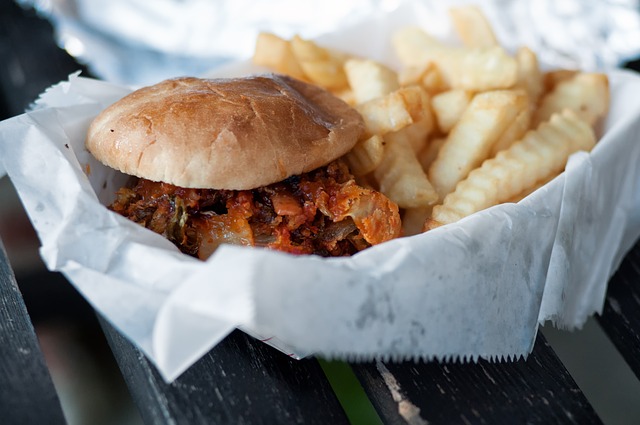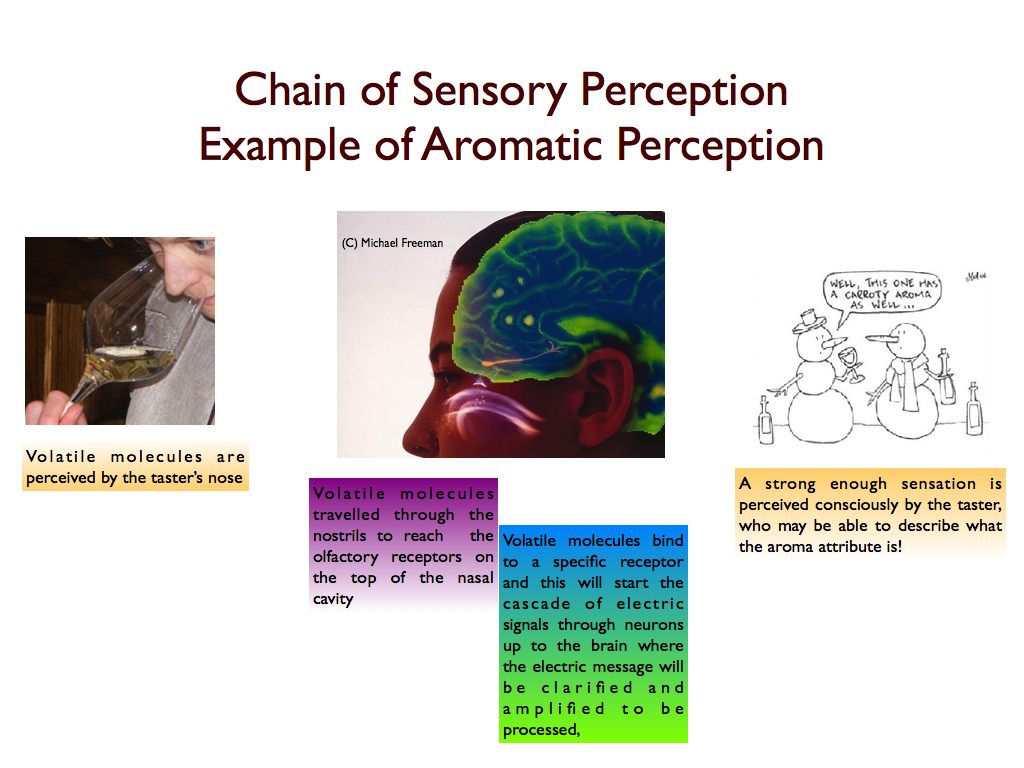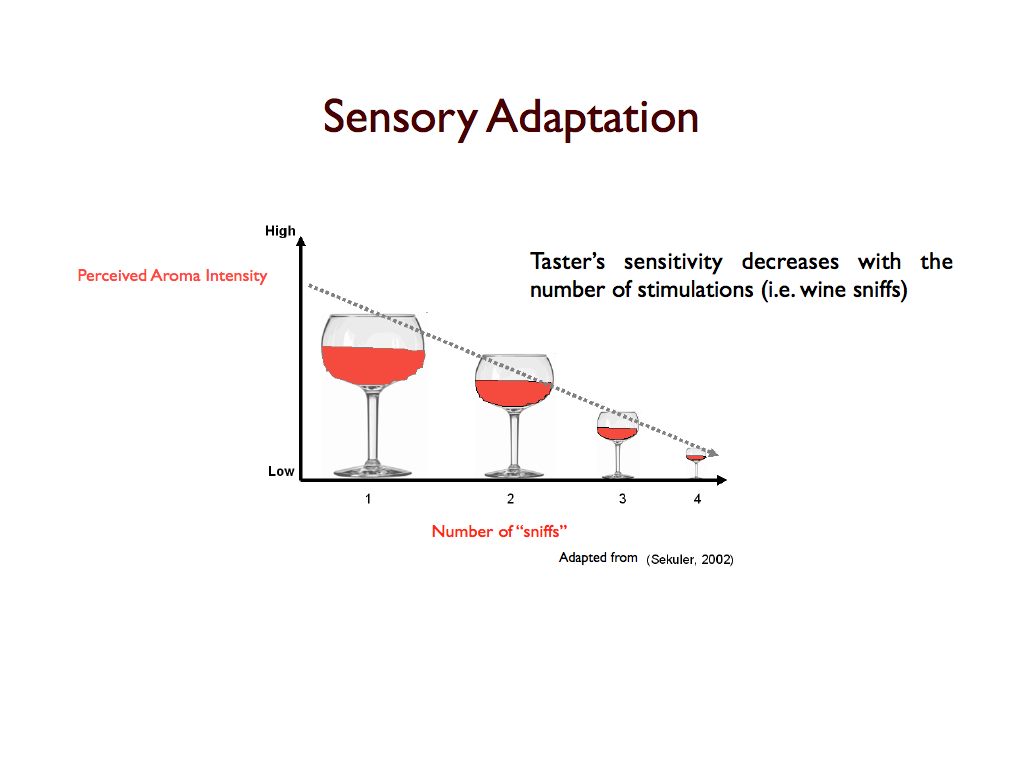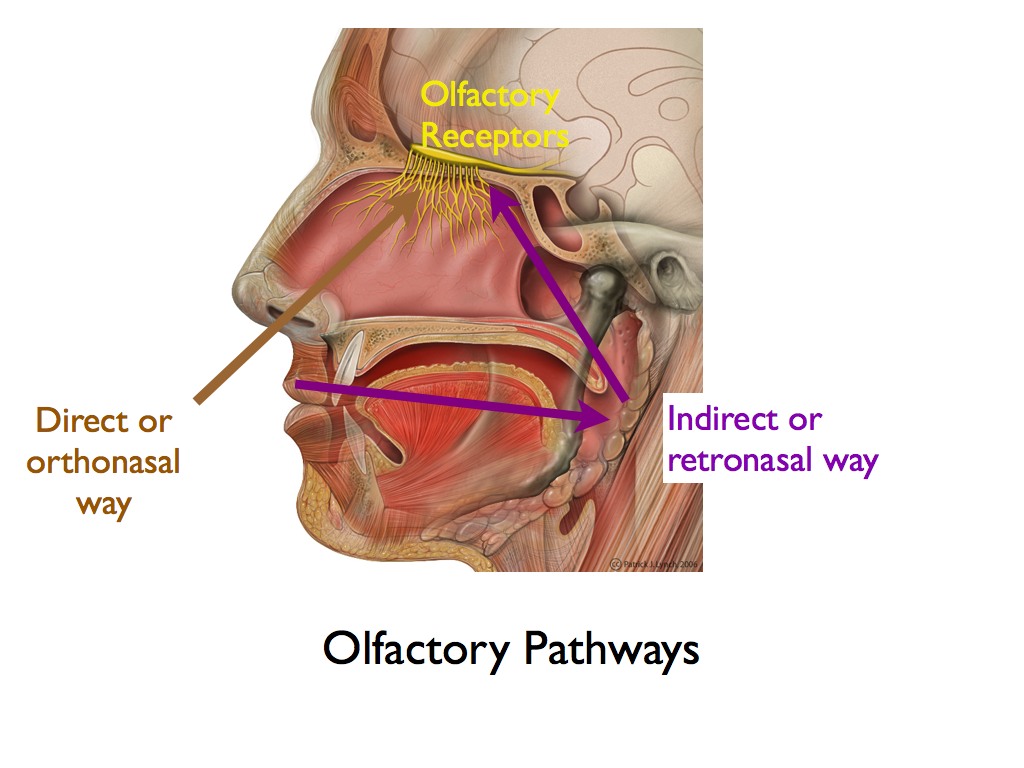What is sensory adaptation,
also called sensory fatigue?
Sensory adaptation is a physiological phenomenon that can lead to tasting errors
Let me give you a classic example of sensory adaptation.

You enter a fast food restaurant and the smell of fries immediately catches your attention. You will be aware of the smell but after a few minutes you will not smell it anymore.
Your sensitivity to this odor gradually decreases to the point you don't smell it anymore, however any new customer entering the restaurant will smell it.
To explain sensory fatigue, let's go back to the chain of sensory perception discussed briefly on the Five Senses page. To perceive and recognize an aroma for example, there should be enough aromatic compounds reaching your olfactory receptors so that you can be aware of the perception. When the stimulus is very intense however, the sensory system will “shut down” once it has conveyed the information to your brain for seconds.

Sensory adaptation is a physiological response of your senses
The consequence is a decrease in sensitivity of your senses, and you are likely to perceive the aromas or tastes less and less intensively.
T his phenomenon can affect your wine tasting experience in several ways:
- By taking repeated big inspirations when smelling a same glass of wine, you may compromise your chance to smell wine aromatic attributes consistently and at the same intensity
- By taking several sips of a same wine without cleansing your palate in between may cause the same effect
- If you are a smoker or if you like wearing perfumes, you are quickly adapted to these odors on your body however, other fellow tasters maybe distracted by them (See the instructions before a wine tasting.)
Adaptation is different from what another phenomenon. Habituation is a psychological response to repeated stimuli and leads to a similar sensory response, i.e. a decrease in intensity rating of the perceived stimulus. Habituation is also considered a tasting error.

What are the tasting techniques available to avoid sensory adaptation?
- Cleansing your palate: rinse your mouth with water and unsalted crackers or bread in between each sample. Have a break for a few minutes before evaluating the next sample.
- Pause your nose: the best strategy is to wait a few minutes, to smell something neutral, for example your cloth sleeve or just a glass of water. The later can also be beneficial for dry nose due to the irritation of alcohol. If the tasting is long, bring a magazine and read. Go out and take some fresh air if you can.
Tasting experience or expertise cannot counter adaptation . It is beyond your self-control. All you can do is rest your senses by the strategy described above.
Home > Tasting Errors > Sensory Adaptation



